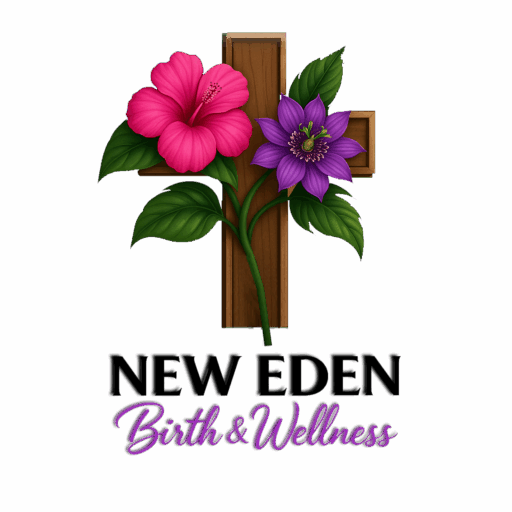A doula and a midwife are both vital members of the home birth team, but they serve distinct and complementary roles that ensure a safe, holistic, and empowering birth experience. Understanding their unique scopes of practice shows why both are essential for a successful home birth.
What is a Doula?
A doula is a trained professional who provides continuous, non-clinical support to the mother and her family during pregnancy, labor, birth, and the postpartum period. Doulas focus on emotional, physical, and informational care, helping the mother feel empowered, confident, and nurtured throughout the process.
Scope of a Doula
Emotional Support: Provides reassurance, encouragement, and a calming presence to help the mother feel confident and at ease.
Physical Support: Offers comfort measures like massage, counterpressure, breathing techniques, hydrotherapy, and positioning to ease labor pain.
Informational Support: Educates the mother and her family about the birth process, helps develop a birth plan, and answers questions to reduce fear or uncertainty.
Advocacy: Assists the mother in communicating her preferences to the birth team, ensuring her voice is heard while respecting medical boundaries.
What is a Midwife?
A midwife is a trained, licensed, or certified healthcare professional who provides clinical care during pregnancy, labor, birth, and the postpartum period. Midwives focus on ensuring the health and safety of the mother and baby by monitoring vital signs, managing complications, and delivering the baby.
Scope of a Midwife
Prenatal Care: Monitors the health of the mother and baby, performs routine tests, and provides personalized care.
Clinical Labor Support: Tracks fetal heart tones, assesses labor progression, and manages complications like hemorrhage or shoulder dystocia.
Delivery and Postpartum Care: Safely delivers the baby, monitors the mother and newborn for signs of distress, and handles emergencies.
Education: Offers guidance on nutrition, breastfeeding, and postpartum recovery.
Why Both Are Needed for a Home Birth
Home births require a comprehensive approach that addresses both medical safety and the emotional and physical needs of the mother.
1. Medical Safety: A midwife ensures the clinical safety of the mother and baby by managing complications and performing life-saving interventions if needed. They are also prepared to transfer care to a hospital if necessary.
2. Holistic Support: A doula provides continuous care, helping the mother feel calm, supported, and empowered throughout the birth. This care can reduce stress, improve labor outcomes, and create a positive birth experience.
3. Teamwork: While the midwife focuses on clinical tasks, the doula ensures the mother has emotional and physical comfort. This division of roles allows both professionals to work seamlessly, providing the best care possible.
Conclusion
A midwife and doula together form a balanced and dynamic team. The midwife ensures the safety of the mother and baby, while the doula provides personalized, nurturing support that helps the mother feel cared for and confident. Together, they create a safe, fulfilling, and empowering home birth experience.
